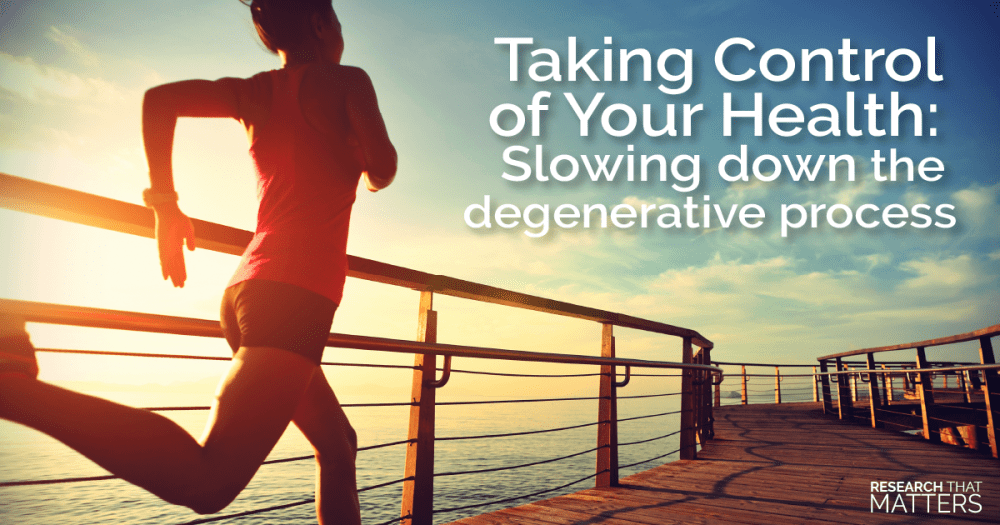
In the office, I often get people coming in which mention they have Degenerative Joint Disease (DJD). They say it almost as if they have some kind of, well, disease. Well, the thing you should know is that thinking of DJD as a disease the same way you think of something like Lyme’s Disease, Parkinson’s Disease, or Liver Disease as a “Disease” isn’t quite correct. You see, the degeneration of joints is actually a normal part of the aging process, very similar to how our skin gets wrinkly or men start balding as they get older. As we age, the cushion between spinal bones called intervertebral discs (IVDs) lose some of their moisture, resulting in less ‘springiness.’
Now that’s not to say that all degeneration is okay. Sometimes degeneration can occur excessively and sometimes it can cause pain. It is in these cases that people are diagnosed with DJD. But what causes this process to speed up? Here are 4 ways this can happen:
- Repetitive trauma (minor or major): If you work in a job where you are “getting beat up” all the time, you can speed up this process. A good example would be stuntsman, who are constantly taking blows from jumps and stunts.
- Overuse: Performing the same movements over and over for long periods puts excessive strain on joints leading to degeneration.
- Immobility: For various reasons our spine may become stiff or restricted, or we may just lead an inactive lifestyle. Our IVDs need that motion to get nutrients, and not getting it will cause them to ‘dry out’ faster. Additionally, this can lead to our next point-inflammation.
- Inflammation: Inflammation is an important part of the healing process, but when it happens for too long or too much, it will result in doing damage by “eating away” at the tissues rather than restoring them.
So how can you keep this from happening? Just as we gave you 4 ways that degeneration speeds up, here are 4 things you can do to slow it down:
- Be active: Moving regularly and doing exercise will keep your spine strong and provide the movements it needs to get the nutrients to stay healthy.
- Good Posture: and not only while standing or sitting, but while moving. When we move correctly, we ensure we don’t put excess stress on our joints and reduce our risk of an injury.
- Stretching: Stretching will help us to maintain the optimal range of motion in our joints, which permits proper movements when exercising and performing daily tasks.
- Chiropractic: Often our joints will become restricted or we may become injured despite our best efforts. At these times it’s important to get adjusted so you can restore proper motion to the joints.
Degeneration is a normal process, so while you can’t stop or reverse it, you can keep that process from happening faster than it needs to. If you have been told you have DJD, remember—you aren’t sick! You just need to make some lifestyle changes to keep healthy. We hope if you are having pain from DJD or any other injury, you’ll come visit Better Chiropractic, your Premier Gilbert Chiropractic Clinic so we can help to get you back on the road to health.




